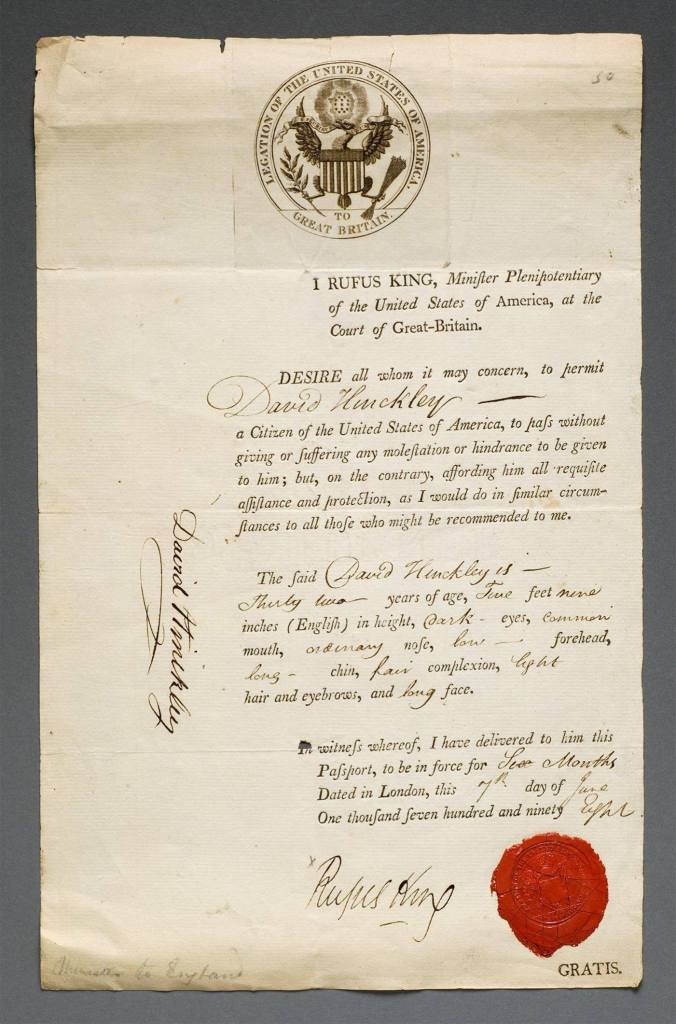Thesis
The Barbary Pirates
Piracy and Diplomacy
Passports of Protection
The Barbary Wars
Significance
Tales From the High Seas
Process Paper and Annotated Bibliography
Although the U.S. successfully negotiated these treaties, it remained dangerous for U.S merchants and sailors. If pirates captured an American ship and the passengers were unable to identify themselves as Americans, the pirates would take them and their ship as normal.
One of the easiest ways to identify yourself was the passport. However, before 1941, U.S citizens were not required to bring a passport when traveling.

Courtesy of the National Museum of American Diplomacy
This passport (seen left) was issued to David Hinckley by Rufus King, who was the American Minister to Great Britain in 1798. Hinckley was a rich Boston merchant who would often make business trips to London.
The Barbary pirates captured Hinckley in the early 1790s, enslaving him for two years before his ransom was paid and he was released. Afterwards, Hinckley made sure he had a United States passport with him whenever he traveled. If he encountered the pirates again, he could use the passport to prove he was protected by the United States’ treaties.